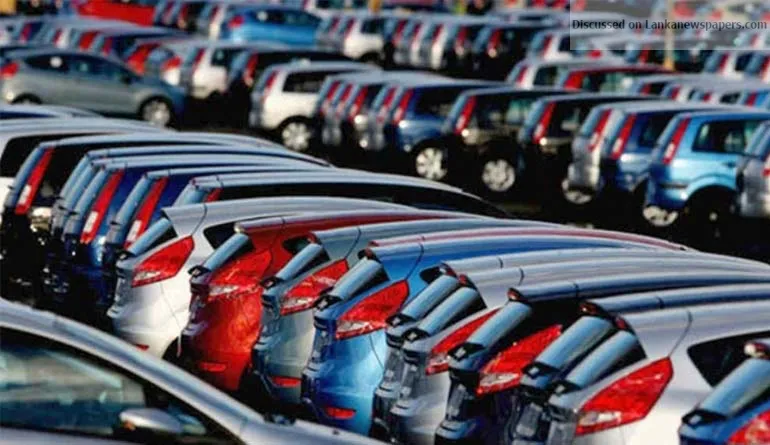Hundreds of vehicles are stranded at the port, with hundreds more on the way, after Sri Lanka Customs abruptly halted the clearance of vehicles imported under cross-border Letters of Credit (LCs) starting May 26 , this year. The move has disrupted a standard industry practice of over a decade, leaving importers facing mounting demurrage charges and significant financial uncertainty. According to the Vehicle Importers' Association of Sri Lanka (VIASL), 200-300 vehicles are currently stuck at the port, with another 300 in transit. The sudden blockage stems from Customs' decision to enforce a clause in a 2013 gazette notification. “Since 26th May onwards, Sri Lanka Customs has blocked the vehicles," VIASL President Prasad Manage told Mirror Business. "For the last 12 years, this has been happening, we don’t know why Sri Lanka Customs has resorted to this action now, referring to a gazette notification issued in 2013.” The justification for the suspension is based on Extraordinary Gazette No. 1804/17. The English version of this gazette requires import documents to be stamped by a "corresponding bank in the export country." However, vehicle importers argue this interpretation ignores both legal contradictions and long-standing commercial practices. In a letter dated June 6, 2025, sent to the Deputy Minister of Economic Development, importers highlighted a critical inconsistency, which is that the Sinhala version of the same gazette refers to the "exporting agent's bank" without any geographical limitation. They argued that since Sinhala is generally treated as authoritative in legal matters, Customs' reliance on the English text is questionable. Cross-border LCs, where a supplier's bank might be in a financial hub such as Singapore or Dubai while the vehicle ships from Japan or the UK, have been the industry norm for 10-15 years. This practice is not limited to parallel importers; numerous authorized agents for major brands use the identical model. According to the letter, these include Toyota Lanka, which opens LCs to Singapore or Japan for vehicles shipped from Thailand; DIMO, which opens LCs to Singapore for vehicles originating from India, Germany, or the USA; and Land Rover, which uses LCs in Singapore for vehicles shipped from Slovakia or the UK. Importers contend that if the structure is to be changed, it must be applied uniformly across the entire industry. To resolve the impasse, a new gazette is reportedly being prepared. "That's what we are waiting for," Manage confirmed. The proposed gazette is reportedly currently with the Ministry of Finance and awaits the signature of President Anura Kumara Dissanayake. "We have approached and sent letters to all the key Ministers, Deputy Ministers, and officials,” Manage added. "We are awaiting a response from the Ministry of Finance and then, we will decide on the next course of action.” The letter from importers challenges the official count of affected vehicles, noting that a list compiled in just hours from only three shipping agents contained over 350 vehicles imported since the ban was lifted on February 1, 2025. This contradicts information allegedly given to the ministry that only five or six such vehicles had been imported. With demurrage costs rising daily, importers have proposed releasing the currently held vehicles subject to a post-audit verification by Customs to mitigate losses. As of now, licensed commercial banks have not been instructed to stop opening such LCs and continue to operate under what has long been considered a legitimate trade practice.
